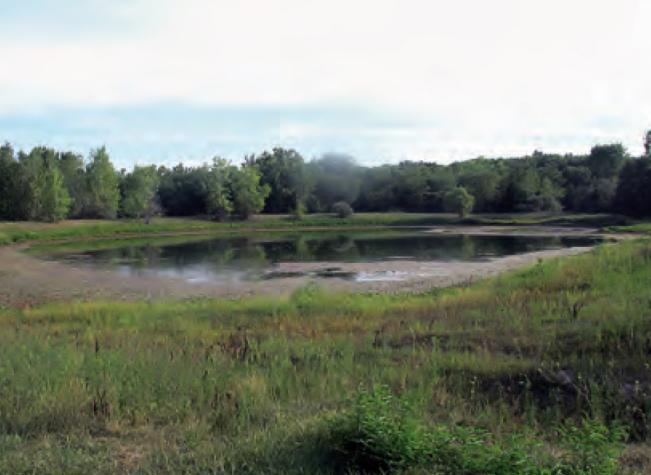
How to manage drought-stressed ponds
This is part of an MU Extension series to help with drought management. COLUMBIA, Mo. – Drought combined with high temperatures can have devastating effects on fish ponds, but pond owners can take steps to alleviate these effects.
Tough culling decisions come with drought, forage shortages
COLUMBIA, Mo. – With dry weather and short pastures, Missouri cow-herd owners face tough culling decisions. One way to match cows’ needs to available grass is to sell cows.Give careful thought to which grass eaters go first, says Eric Bailey, University of Missouri Extension beef nutritionist. Under drought stress, identifying those cows becomes urgent.
Nitrate, prussic acid poisoning follow drought
COLUMBIA, Mo. – Nitrates and prussic acid build up in forages to levels dangerous to livestock during drought.Livestock face severe illness and even death after eating affected forages, says University of Missouri Extension agronomist Jamie Gundel.Nitrates tend to concentrate in the bottom third of the plant. It shows in the plant’s stem and stalks more than leaves, Gundel says.
Corn silage as a forage
COLUMBIA, Mo. – An emergency feeding situation is shaping up for Missouri’s beef producers because of the drought. University of Missouri Extension recently hosted University of Wisconsin agronomist Joe Lauer on the MU Extension Forage and Livestock Hour to discuss his research on corn silage as a forage.
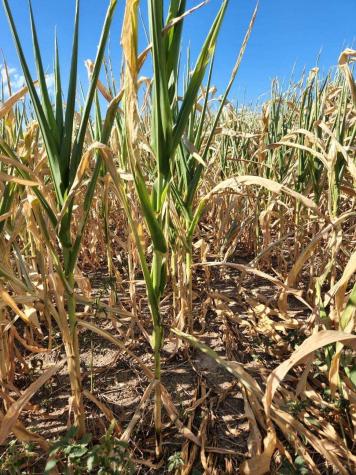
Missouri dairy producers have their eyes on the drought
COLUMBIA, Mo. – Northern Missouri has received plenty of rain, and dairy producers there are hopeful about making a silage pile, while those in the state’s southern counties are looking at options as drought conditions and oppressive heat have taken hold.
MU guide looks at reconsidering silage pricing
COLUMBIA, Mo. – Drought throughout much of Missouri has renewed interest in how to price silage. An updated University of Missouri Extension publication looks at silage costs and revenues.
Plants respond to heat differently than humans
COLUMBIA, Mo. – Extreme heat affects plants differently than humans.With triple-digit temperatures this summer, grain crop growers should understand how heat affects plants, says University of Missouri Extension agronomist Bill Wiebold.First, human concepts such as “heat index” or “feels like” do not apply to plants, Wiebold says. People and plants feel and react differently to heat.
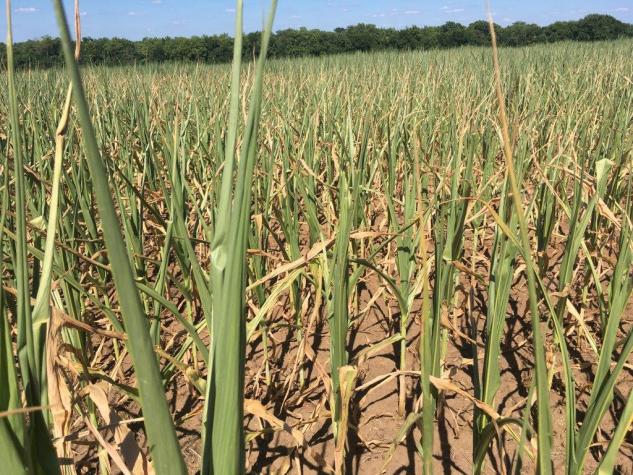
MU Extension resources for farmers amid deepening drought
COLUMBIA, Mo. – “It’s not a good situation” for agriculture in the southern two-thirds of Missouri, where scant rainfall and high temperatures have led to worsening drought, said Pat Guinan, associate extension professor of climatology with University of Missouri Extension.The ample moisture in northern Missouri ends abruptly where drought conditions begin in central through southern Missouri, Guinan said.
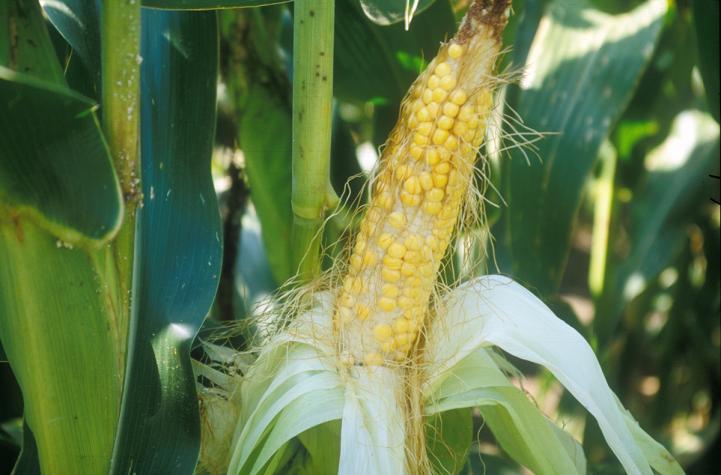
Lack of rainfall during corn's R1 stage spells trouble
Lack of rain during corn's R1 stage can severely impact kernel formation and reduce yields, with drought stress leading to irreversible damage.
Silage-making reminders
SEDALIA, Mo. – While it is still too soon to sound the alarm on “drought,” parts of the state are becoming severely dry, said University of Missouri Extension livestock specialist Gene Schmitz.
Drought increases risk of forage poisoning
COLUMBIA, Mo. – Drought increases the chance of nitrate poisoning and prussic acid poisoning. High concentrations in plants and water can harm or even kill animals. High nitrate, mostly concentrated in grass stems, causes quick death, says University of Missouri Extension agronomist Jill Scheidt. Nitrate in the blood blocks oxygen uptake. Without oxygen, cows die quickly.
Missourians encouraged to submit drought reports
COLUMBIA, Mo. – The public is invited to submit information to help local, state and national decision-makers assess drought conditions and impacts in Missouri.
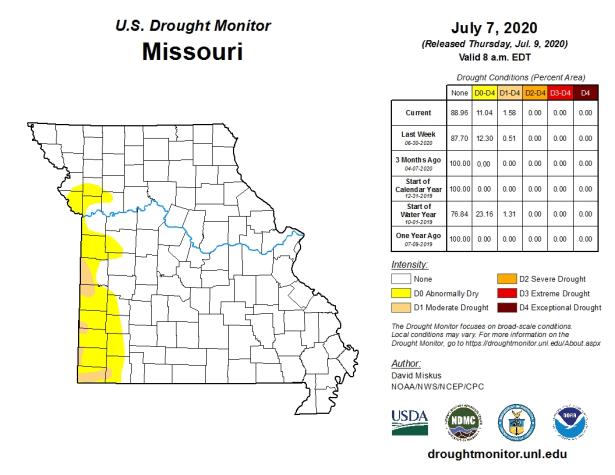
Too little water, too much heat puts tasseling corn at risk
COLUMBIA, Mo. – Moderate drought for as little as five consecutive days can cause major damage in corn, according to University of Missouri Extension agronomist Bill Wiebold.
Drought cuts pasture growth, farmers face culling cow herds
COLUMBIA, Mo. – In dry weather with short pastures, Missouri cow-herd owners face tough culling decisions. One way to match cows’ needs to available grass is to sell cows.Give careful thought to which grass eaters go first, says Eric Bailey, University of Missouri Extension beef nutritionist. Under drought stress, identifying those cows becomes urgent.
Farmers seek help from MU agronomists on dry weather impact on crops, forages
COLUMBIA, Mo. – Newly made spring hay finally being baled in June may be toxic for cattle. Hold off on feeding new hay, says Craig Roberts, University of Missouri Extension forage specialist.The longer the hay can be stored after baling, the less toxic it becomes.
Drought tops questions called to MU Extension
COLUMBIA, Mo. – Extension agronomist talk was calm on the weekly teleconference. Few problems discussed on bugs, weeds, fungus or other pests. Then the weather hit the fan. Reports from across Missouri told of farmers’ concerns about lack of rain.For corn farmers it’s the threat of rootless corn. Soybean growers worry about low emergence and uneven stands.Cattle farmers ask “Where’s the grass? What do we do for hay?”
